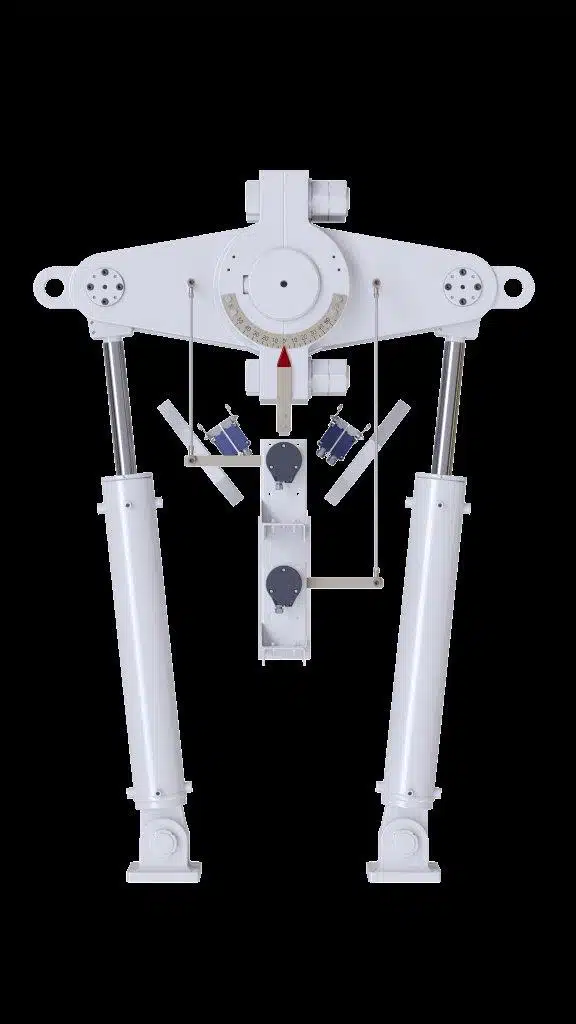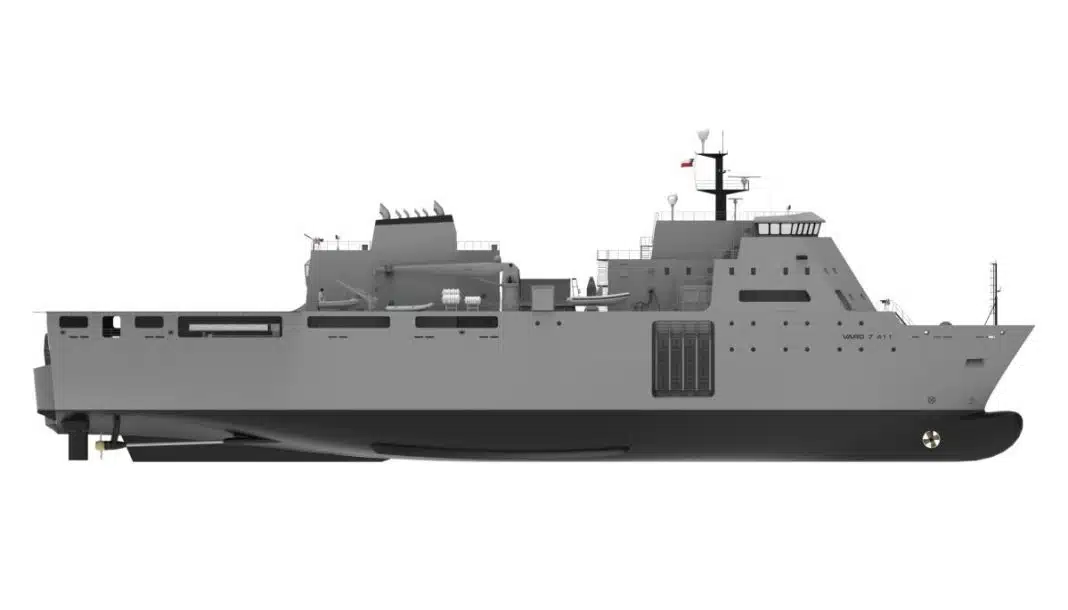Wärtsilä has awarded Damen Marine Components (DMC) a contract to provide steering equipment to two Landing Platform Docks (LPD) of the Chilean Navy being built at ASMAR. DMC is supplying a range of highly energy efficient equipment to the vessels, which will reduce fuel consumption and resultant emissions.

The LPDs are being constructed for the Escotillón IV project at the state-owned Astilleros y Maestranzas de la Armada (ASMAR) shipyard. The 110-metre long vessels will fulfil the dual purpose of increasing Chile’s defence capabilities as well as the nation’s ability to perform humanitarian operations.
DMC will supply the two vessels with its Commander™ piston type steering system. This compact and efficient system is built to a standardised, proven design.
Additionally, DMC will supply two Atlantic rudders including Silent Bulbs. The Silent Bulb is a fuel saving device designed to reduce the risk of cavitation on the rudder by lowering flow losses from the propeller, thereby expanding the lifecycle of the rudder. Additionally, the Silent Bulb increases propeller thrust, thereby enabling the vessel to sail at the required speed with considerably less power output.
DMC’s Sales and Marketing Director, Wim Knoester, says, “We are very pleased to be awarded this contract and I’d like to express my gratitude to Wärtsilä for placing their trust in DMC. These vessels will perform an important role in Chile. The equipment we are supplying to the project will enable them to fulfil their duties with increased efficiency, optimised performance and reduced underwater noise, greatly improving the sustainability of their operations.”
Simon Riddle, General Manager / Marine Solutions / Navy at Wärtsilä, adds, “DMC’s energy efficient rudders are combined with the vessels’ high efficiency propeller and fairing caps. With the addition of the Silent Bulb to the rudders, testing has demonstrated that required power values are reduced by 3-4% for the desired sailing speed. This offers a reduction in fuel consumption of up to 1.5%, offering considerably increased efficiency during operations.”












